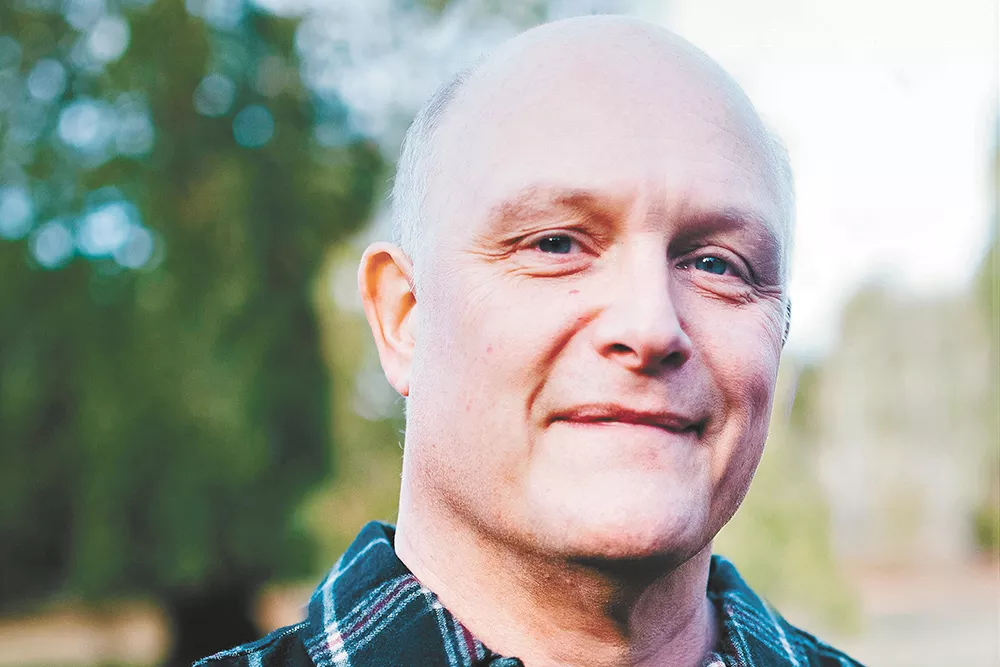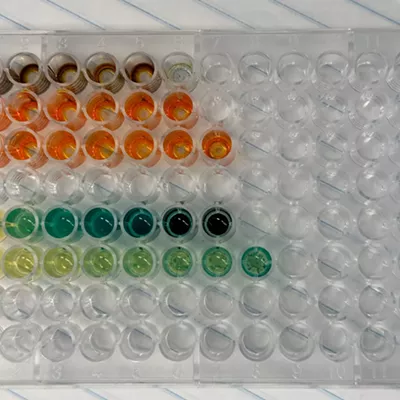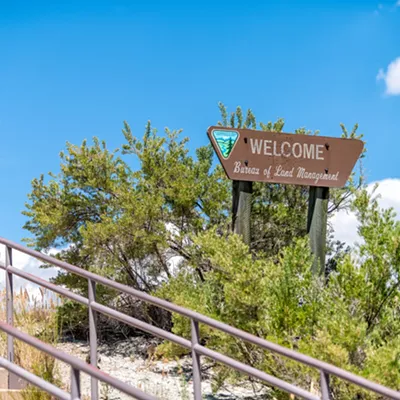
Gregory Spatz thought it was a harmless email. An author, musician and creative writing professor at Eastern Washington University, Spatz had just finished a new CD with his wife in spring 2018. He sent out an email to his colleagues and students inviting them to attend a launch party and potluck, with up to a $15 cover fee.
He wasn't expecting to make a profit.
He wasn't expecting it to constitute an ethics violation that would cost him thousands of dollars, either.
But that's exactly what happened. Someone reported the email to the State Auditor's Office, which then prompted an investigation by the Washington State Executive Ethics Board. Spatz learned that not only is the email a potential ethics violation — since state law prohibits state employees from using state resources for private gain — but so too were the links to his published books on his EWU bio page.
Spatz argued the ticket sales were to cover the cost of hosting the event. And he says he didn't even create his website with links to his books, noting that other faculty members also linked to their own work. Some of the books are out of print, and he couldn't make money from them.
Still, he was fined $2,500.
"I had no idea those violations existed," Spatz tells the Inlander.
The situation left Spatz stunned. Other faculty members at EWU were baffled. Suddenly, they feared that seemingly everyday activities could get them in trouble. Could they write poetry at their work desk? Could they practice for a concert on the university's piano? Could they listen to internet radio on their work computer?
Those are the questions that Sam Ligon, an author and the faculty legislative liaison for EWU, started asking the state ethics board. And usually, the answer to those questions was no.
"It created a massive fear culture at EWU," says Ligon, whose writing has appeared in the Inlander.
And now, it has them questioning the law in the first place. While Ligon agrees with its intent — nobody wants state employees abusing state resources — he wonders if it's working as intended if it causes university professors to be this worried.
CAPTIVE AUDIENCE
In theory, the law is relatively straightforward: You can't use state resources for private benefit or gain.
Compared to other states, Washington is highly ranked when it comes to how state ethics agencies enforce their sanctioning powers and how transparent the process is, according to a September report from the Coalition for Integrity. Idaho, by contrast, doesn't have an independent state ethics agency at all.
Some recent cases investigated by the Washington State Executive Ethics Board illustrate the purpose: a former Washington State Military Department employee who used a state credit card for unauthorized charges, and a Western Washington University employee who used the university's Amazon Prime account to purchase personal items.
In other situations with university employees, however, it's not so black and white. Consider a professor teaching a class for which that professor wrote a textbook and may be a leading authority on the topic. Can that professor make students buy their book? The answer is yes, but the professor must demonstrate that they aren't making a profit on the sale of the book.
"A professor cannot choose their own textbook for a class they're teaching and benefit financially from that."
"A professor cannot choose their own textbook for a class they're teaching and benefit financially from that," says Kate Reynolds, executive director for the state Executive Ethics Board. "That textbook needs to go through a review process that the professor is not involved in."
Professors have been fined for violating that process in the past. But that introduces one of the issues with ethics violations: It's complaint-driven, which can give the impression that the rules are enforced arbitrarily.
For example, Mike Leach, the Washington State University football coach, taught a noncredit seminar series with Spokane County Treasurer Mike Baumgartner earlier this year. One of the books on the reading list was Swing Your Sword: Leading the Charge in Football and Life, written by Leach. Leach went to Twitter to announce the class and said his book and another that he co-authored were "required pre-class reading."
There was no process to get that book approved, WSU spokesman Phil Weiler says. But he notes that the class was free, there were no grades and the reading list wasn't enforced.
Reynolds says it shouldn't matter if it's a paid class or if there were grades.
"We would expect to see a process," Reynolds says.
Yet even if that would meet the criteria for an ethics violation, there would likely need to be a complaint before any investigation. It's the same reason Spatz was fined in part for linking to his own books on Amazon, even though you're likely to find the same kind of thing in a quick search of faculty biopages at other universities.
Baumgartner, a former state senator who was vice chairman of the Senate Higher Education Committee, says he prepared the reading list for Leach's class without thinking there would be any problem. He says he'd only have a concern if someone was trying to coerce students for financial gain without an educational benefit.
He also doesn't think university employees should get fined for listing their book on the university website.
"I don't see the public harm in that," he says.
INCENTIVIZING RESEARCH
There's a reason professors link to their own work on their university pages. And it's not usually for financial benefit. It's for the benefit of the college, employees argue — it helps attract students when they see a professor has published books.
"Our whole motivation is to promote the program," Spatz says.
There are, in fact, certain exceptions allowing university employees to make money using state resources. But as the law is now being interpreted, that can only occur at the state's research universities: Washington State University and University of Washington. And it typically applies to researchers in the sciences.
An easy example of this, says WSU chief auditor Heather Lopez, is Gatorade. Researchers at Florida State University received a grant and developed a new drink, and it turned out to be something that was commercially viable.
"That profited both the institution and individuals," Lopez says.
WSU, which has a goal to be one of the top research universities in the nation, wants to promote research, whether it's medical technology, engineering or something else. Telling researchers that they can't benefit from that is not incentivizing, Lopez says.
"We want to promote research, we want to promote technology and even get some of our research and researchers into commercialization of their technology," Lopez says.
GOOD INTENTIONS
Spatz and Ligon acknowledge that Spatz's case was pretty clear. It was a learning experience for faculty, Ligon says. His email from a state computer would have been a problem at any university — though Ligon questions if it's a $2,500 problem.
But Ligon wants regional universities like EWU to have the same exceptions as the research universities. He plans to spend time in Olympia in his role as legislative liaison to explore options to accomplish that goal. He thinks there could be a way to interpret the law such that it lets professors from EWU come up with innovations that could reward them and the institution.
It may only require a tweak, he says.
"We want to encourage that," Ligon says. "We don't want to say, 'Don't do anything that could possibly have any value.'"
He stresses that he understands the intent of the law. But in his view, using a university credit card for personal use is different than promoting your own work.
"The intent is good," he says. "It's just that the way it's being interpreted right now feels off." ♦





















